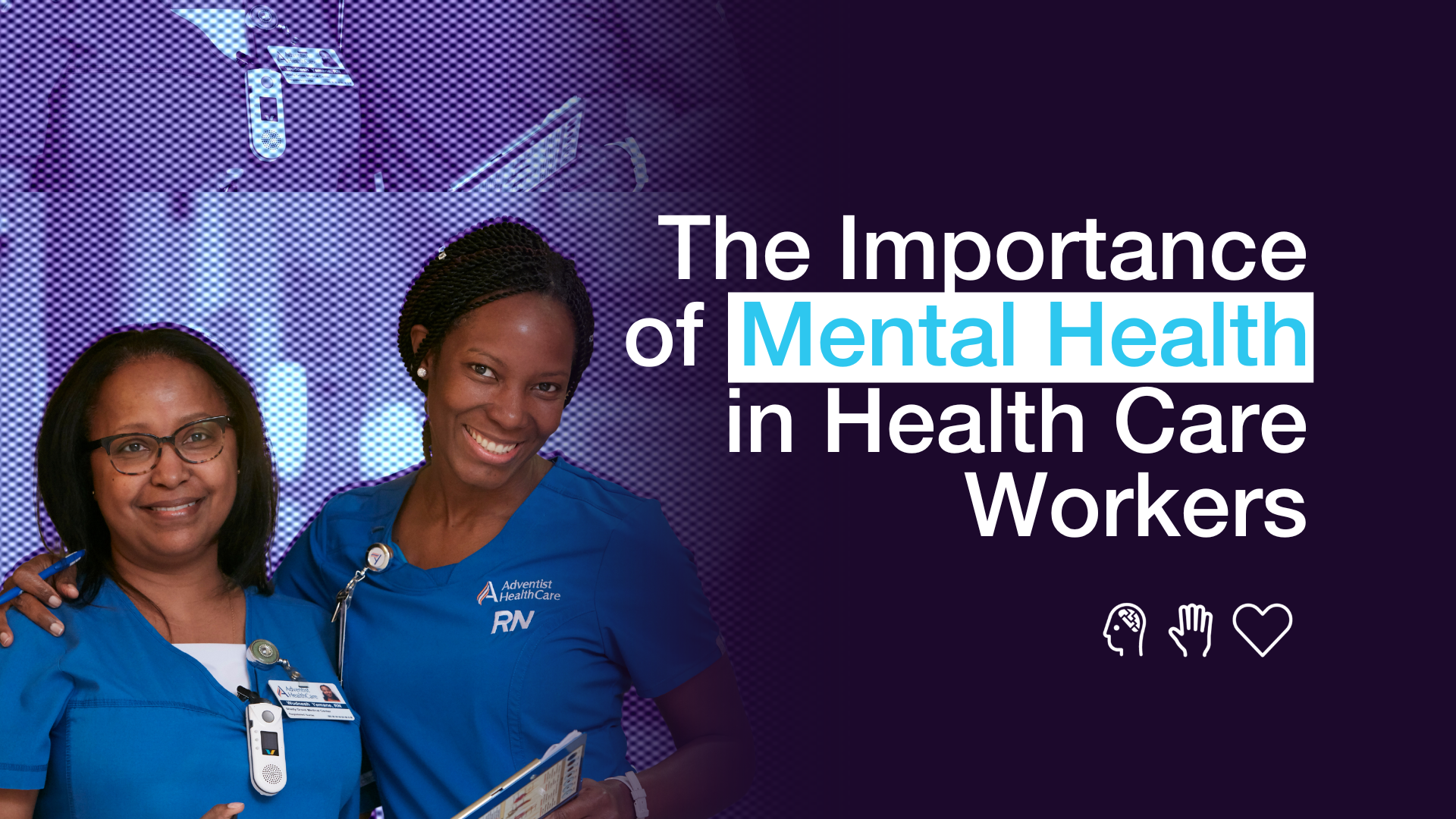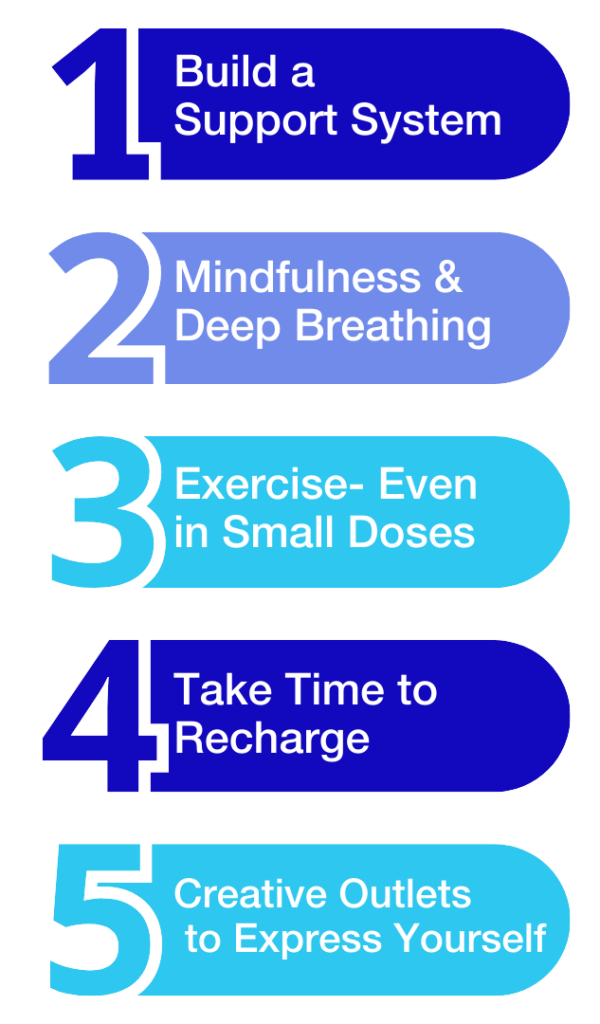The Importance of Mental Health for Health Care Workers
Health care professions are built on compassion and care. However, it’s no secret that the health care climate can be overwhelming.


Health care workers sometimes face long hours, high-pressure situations, and an emotional toll of caring for patients. Burnout, low morale, and disengagement are all too common, which is why focusing on mental health is crucial—not just for the individual but for the quality of care provided to patients.
The Maryland Healthcare Education Institute (MHEI) has recognized this and provides training in Compassionate Leadership. This training helps address the rates of compassion fatigue and burnout. By focusing on culture and well-being, health care organizations can help support you and build resilience in the workforce.
But how can health care workers take control of their mental health? Here are five tips for destressing and recharging because taking care of yourself is the first step in providing excellent care for others.
Five Tips for Managing Your Mental Health
1. Build a Support System: The Value of Peer Support
One of the best ways to manage stress and maintain mental health in the workplace is by building a strong support system. Whether through formal programs or informal networks, having peers to turn to during stressful times can make all the difference.
The Maryland Patient Safety Center, in collaboration with the Johns Hopkins Armstrong Institute for Patient Safety and Quality, developed the RISE (Resilience in Stressful Events) program. RISE offers timely peer support to health care workers experiencing emotional distress, providing crisis support, stress management techniques, and psychological first aid.
Tip: Even if your organization doesn’t offer a program like RISE, you can still create a peer support group. A few trusted colleagues who understand the unique challenges of health care work can be a powerful resource.
2. Practice Mindfulness and Deep Breathing
Mindfulness exercises and deep breathing are simple but highly effective ways to combat stress in real time.
Working in health care can sometimes feel chaotic, with things moving fast and emergencies arising unexpectedly. Incorporating brief moments of mindfulness—like focusing on your breath for a few minutes—can help restore your sense of calm and control.
Tip: Try the “4-7-8 breathing technique” when you’re feeling overwhelmed:
- Inhale for 4 seconds
- Hold your breath for 7 seconds
- Exhale slowly for 8 seconds
Repeat this cycle 4 to 5 times to quickly calm your nervous system.
3. Exercise: Even in Small Doses
Physical activity is a proven stress-buster, but not everyone has time to hit the gym after work. The good news is that even small bursts of exercise can improve your mood and reduce stress. Taking the stairs, walking during breaks, or doing a quick 10-minute workout at home can release endorphins and clear your mind.
4. Take Time to Recharge
Health care workers are naturally compassionate and driven to help others, but it’s important to recognize when to step back and recharge. Burnout often occurs when individuals neglect their mental health in favor of meeting work demands.
The concept of compassionate leadership, taught by MHEI, encourages health care leaders to model these healthy boundaries and create a workplace culture where self-care is normalized. Leaders can foster engagement and morale by supporting their teams in taking time to recharge.
5. Use Creative Outlets to Express Yourself
Creative outlets like journaling, painting, or even cooking can help release stress and refocus your energy on something positive. These activities give your mind a break from the intensity of work and allow you to process emotions in a healthy way. Engaging in something creative is not only fun but can also lead to greater emotional resilience and relaxation.
Why Mental Health Matters in Health Care
Health care workers often feel like they need to be strong for others. However, self-care is a vital part of maintaining compassion and energy. By focusing on mental health, health care organizations and individuals can ensure they’re ready to meet the challenges that may arise in this field with resilience and strength.
If you’re feeling overwhelmed, remember that you’re not alone. Programs like RISE and Compassionate Leadership training are just a few examples of the resources available to support health care workers. Take time to care for yourself—it’s the first step in continuing to care for others.